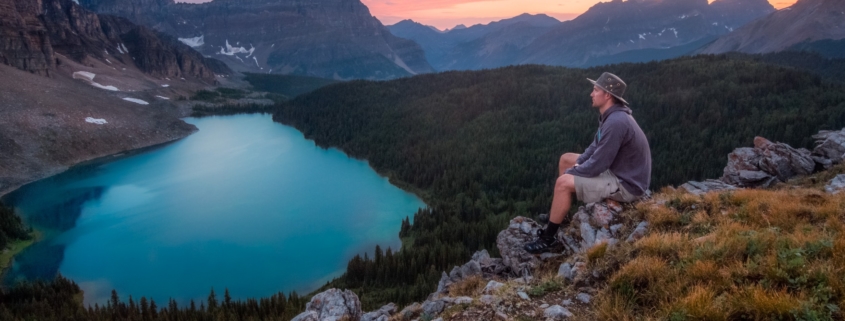How Can we Best Manage our Mental Health During the Crisis of Covid-19 – by Kim Meares
(Editor’s note: Kim Meares, Marriage and Family Therapist, is a practicing psychotherapist in Lake Arrowhead, CA. She is co-chair of the PSIA-AASI W Adaptive Task Force and director of the Adaptive program at Snow Valley Mountain Resort. She is a co-founder and helps run Rim Special Athletes which during the winter provides adaptive ski and snowboard lessons at Snow Valley.)
My husband (who, frighteningly, is also a therapist) thinks that daytime sex and Netflix is sufficient. But, let’s look at some additional ideas.
Anxiety was already pervasive prior to this pandemic, but during these distressing times we are affected even more. Fear, of which anxiety is one type, is always about the future. Concerns about our health and our loved ones, loss of emotional support due to social distancing, boredom and restlessness that come from lack of structure and loss of purpose, seeing other people as threats to our own lives, the stresses that come from 24/7 parenting and less individual space – all these drive the anxieties we feel today. As snowsports instructors, we may worry about whether our mountain will open and whether we will have a job. There remain unanswered questions about how the ski industry will respond and how our own ski school in particular will operate.
These are all real, not imaginary, concerns and our challenge is to cope as well as we can with this new reality. In the discipline of Adaptive we emphasize adapting equipment and techniques to enable an individual with unique physical, cognitive and affective challenges to be able to participate in snowsports. During this time of Covid-19, we have all been challenged to adapt to this unprecedented stressful situation. Stress inhibits our immune system. It feels unpleasant. So it’s important to reduce our stress. Here are some ways.
First, let’s look at lifestyle practices that can inoculate us against stress no matter the situation.
We all do best if we get about eight hours of sleep each night, not a lot more nor a lot less. The human species evolved going to sleep when it gets dark and waking when it gets light. We’re not a nocturnal species and our circadian rhythms are disrupted when we sleep like we are.
Healthy eating helps with stress management. Reduce caffeine. Reduce sugar. Reduce highly processed foods. Increase fresh vegetables and whole grains. Vitamin B complex is reputed to help build resistance to stress. This is a good time to stabilize your weight by avoiding fast food and reducing desserts.
Attend to medical concerns that trouble you. Take your medication, vitamins and supplements. If you have medical issues, contact your doctor’s office for advice and have them assess whether your condition merits a trip to the doctor’s office or the hospital.
Moderate exercise will reduce stress more than any other practice you might undertake. Many of us are fortunate to live in environments that support outdoor distanced exercise such as hiking, jogging, rock climbing and biking. In addition, there are a variety of exercise programs available online. For stress reduction, you’re looking to work out 3-4 times a week for at least 40 minutes, strenuous enough that you need to increase your breathing, but can still carry on a conversation. Remember, you can work on your ski-specific muscles without going to the gym.
Relationships continue to be very important, even as we are advised to radically reduce our face-to-face interactions with others. Maintain social supports through use of Facetime, Skype, Zoom, chat rooms, and the old-fashioned telephone. During enforced living with others, this is a good time to develop deeper and more emotional communication with your family. People do better when they have someone with whom they can share openly, get decision-making advice and mutually participate in running the household.
At the same time, we all need relief from responsibilities and from attending to others. (Ask any parent whose kids are now home full-time.) Don’t neglect the value of recreation, even if it’s “Me Time.” What’s fun to you? It helps if we have things to look forward to, at least weekly, preferably daily.
While it’s a luxury to have leisure time, it’s easy to fritter it away and realize you’re spending your days in sweatpants and getting nothing done. You’ll feel better if you develop structure in your life. Develop a schedule, post it on the fridge and keep to it. Get up on time, shower and dress for the day. What can you do that will make you pleased with yourself when the day is done? It’s easy to be self-indulgent, but we’re happier when we’re self-disciplined.
We do better when we have a well-defined set of values, whether they are specifically religious, generally spiritual, informed by reason, uniquely our own or of the Golden Rule variety. Are your actions consistent with your belief system? Our mental health is best when our conscience is clear and our behavior reflects what we believe.
Next, when there are distressing events over which we have no power, it’s often helpful to have distractions to get our minds off the stressors.
Consider doing that project that you never got around to because you don’t have enough time, for example, painting the kids’ room, re-organizing the garage, spring cleaning, planting a garden, reading War and Peace or watching as many of the AFI’s top 100 movies as you can. How about doing the book study for your next certification or participating in the webinars being offered by PSIA/AASI?
Attempt something new like learning a musical instrument or trying your hand at painting. For example, for years I have been wanting to learn sign language, so I have used this time to join a class being offered by Disabled Sports Eastern Sierra, the adaptive program at Mammoth.
You could come up with activities such as board games to do as a family. When is the last time your family played a rousing game of Monopoly? Or had a Wii tournament? We taught our son to play Rummikub and even had a three-family Rummikub party on Zoom. What about cooking together as a family, trying new recipes for pizza? How about doing an art project together? For example, have everyone draw a different part of a picture or hand paint Christmas cards for next December.
Besides lifestyle and distractions, you can also utilize relaxation techniques. This could consist of simple techniques like deep breathing exercises, taking a bubble bath, having your partner give you a luxurious massage or listening to calming music. Or you could use more formal techniques such as meditation, prayer, yoga or guided imagery. There are numerous classes being offered on-line. For example, my adaptive program, Rim Special Athletes, is conducting yoga classes on Zoom for anyone interested.
Mindfulness has become popular in recent years. It is the practice of focusing on here-and-now experiences without judgment. This is the opposite of anxiety, which is focused on future problems. Mindfulness can simply be focusing on the world you see from your deck or performing actual exercises such as a self body scan or doing everything left-handed for a day. Like most things, you can find lots of exercises by Googling “mindfulness.”
Finally, let’s look at how our thoughts contribute to our anxiety. Feelings come from our thinking. So if we change our thinking, we will change how we feel. For example, if my husband asks me why I am so late, I might think he is trying to control me and I will likely feel offended. On the other hand, if I think he is worried about losing me, I will feel cared about. A goal of mental health is to be able to see the world as it really is. Psychologists have cataloged styles of thinking that distort the way we see reality.
During the Covid-19 pandemic, we are more prone to certain of these distorted thinking styles. Currently, the most prevalent is “Catastrophizing,” also called “Awfulizing.” In this style we focus on the worst possible outcome and obsess about it to the exclusion of more likely outcomes. An example of this type of thinking is, “I am going to surely die if I am infected.” The solution is balanced realistic thinking. “With good distancing practices I am unlikely to get infected. Even if I do, ninety-nine percent of people recover” (depending on which authority you listen to). Ninety-nine to one are pretty good odds!
In “Misattributing,” we assign an incorrect reason for an event, often falsely assuming ill intent. I might assume malevolence in a person not wearing a face mask in public, (“He is being selfish and doesn’t care about the rest of us.”) rather than a more neutral cause (“He left home in a hurry.”) After all, since I don’t really know why anyone does what they do, why not assume positive or at least neutral intent. Then I can maintain a more positive attitude toward my fellow man.
In “Filtering,” we focus on certain cherry-picked facts which confirm our fears or biases and ignore information that contradicts our conclusions. For example, spending hours a day glued to televised scenes of emergency room chaos and death is bound to disturb the viewer. That ignores the fact that 100 times more people have recovered than have died.
We can never forget how important gratitude is. We run the risk of focusing on our present misfortune, bemoaning our isolation, financial stress and medical risk. We can benefit from paying attention to what we have to be thankful for. We are still alive. There are people we love. We live in a beautiful place. We have lots of leisure time. There is no shortage of books, movies, TV shows and music with which to entertain ourselves. We live in a time of unprecedented wealth and safety. Life expectancies are up. Crime rates are down. This is the safest time in human history. There is an emerging spirit that we are all in this together. We are witnessing altruism and courage of our healthcare workers and essential service providers. This is a time for us to feel compassion for our fellow human beings.
Stay safe. Stay healthy. Relax.
Oh…and daytime sex and Netflix help as well.
Written by Kim Meares – Western Adaptive Task Force Co-Chair





